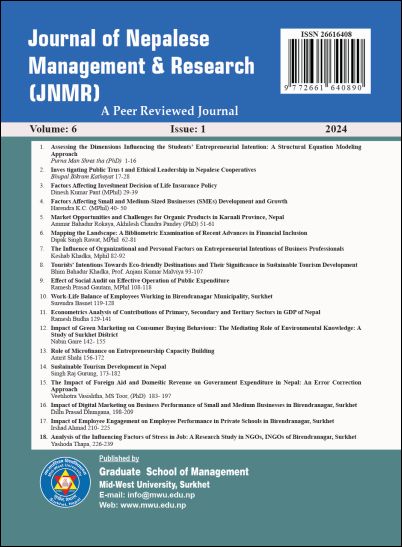Assessing the Dimensions Influencing the Students’ Entrepreneurial Intention: A Structural Equation Modeling Approach
DOI:
https://doi.org/10.3126/jnmr.v6i1.72077Keywords:
Personal attitude, Subjective norms, Perceived behaviour control, Entrepreneurial education, Entrepreneurial intentionAbstract
Entrepreneurial activities play a substantial role in the economic development of the nation by solving unemployment problem. These activities are the consequence of the entrepreneurial intention of an individual, which is influenced by numerous factors. This study aims to identify the dimensions influencing the EI of university students. To identify the determinants of EI, it has used the components of the TPB along with entrepreneurial education (EE). The required data for the study are obtained by using a structured questionnaire survey of 384 bachelor and masters-level students at Mid-West University. To recognize the dimensions influencing the EI of students, the collected data are analyzed by utilizing structural equation modeling (SEM). The result reveals that the components of TPB, along with EE, play an influential role in determining the EI of students. Moreover, this paper also reveals that EE mediates the relationship between the factors of TPB and EI. Thus, this paper concludes that as the students get entrepreneurial education, they become more interested in being entrepreneurs. Therefore, higher education institutions should provide sound entrepreneurial education to all students, and policymakers should make sound policies for fostering entrepreneurial activities in the country.




